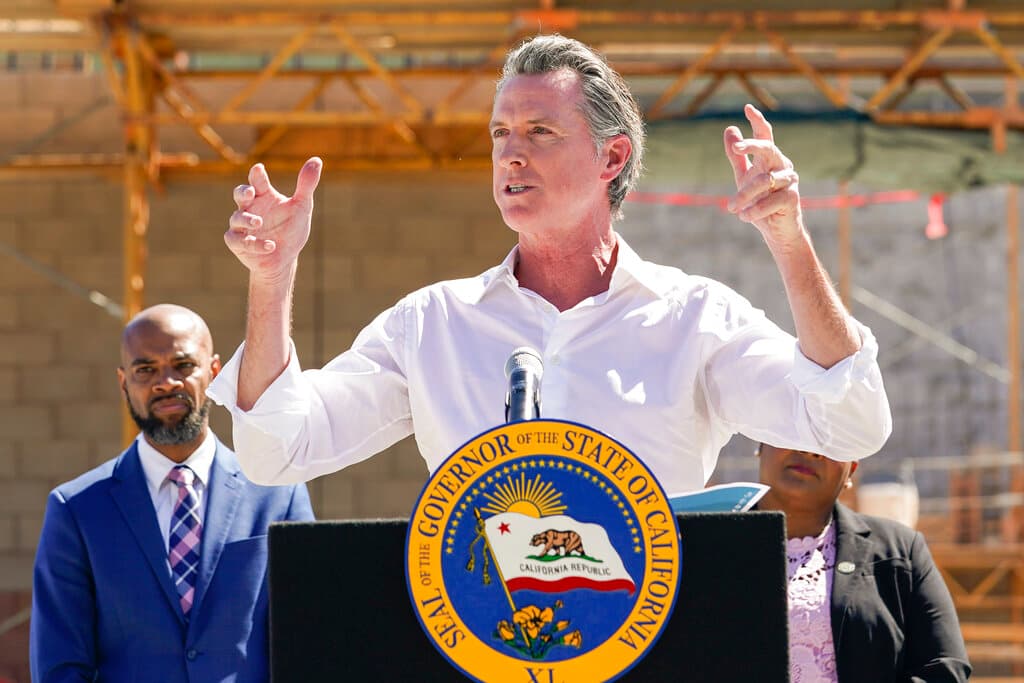Coast Governor Shies Away From His Own Task Force’s Recommendation That State Pay Out Billions of Dollars in Reparations
Dealing with the legacy of slavery is ‘about much more than cash payments,’ the California governor says.

The Democratic governor of California, Gavin Newsom, is backing away from the recommendations of a state task force on reparations for Black Americans, an effort he once touted as a ground-breaking model for the rest of the country.
The task force, appointed by Mr. Newsom in 2021, recommended this week that the state pay out billions of dollars in reparations to California’s 2.5 million Black residents to atone for decades of discrimination in health care, housing, and policing that he said is “deeply rooted in the legacy of slavery and systemic racism.” Some estimates have put the bill for such reparations as high as $800 billion, more than two times what the state spends annually on all other programs.
Mr. Newsom issued a statement saying that his office is already at work on many of the task force’s recommendations but stopped short of saying he would support cash payments as a means of dealing with the legacy of slavery.
“Dealing with that legacy is about much more than cash payments,” Mr. Newsom said in the statement. “This work must continue. Following the Task Force’s submission of its final report this summer, I look forward to a continued partnership with the Legislature to advance systemic changes that ensure an inclusive and equitable future for all Californians.”
Mr. Newsom sounded a much more supportive tone to the idea of reparations when he first announced the creation of the task force in May 2021. “California is leading the nation, in a bipartisan way, on the issue of reparations and racial justice, which is a discussion that is long overdue and deserves our utmost attention,” the governor said at the time.
Nor has he shied away from other efforts to redress past wrongs with financial compensation. In 2021, he set aside some $7.5 million in state funds to compensate people who were sterilized against their will while living in state hospitals and correctional facilities throughout much of the 20th century. “While we can never fully make amends for what they’ve endured, the state will do all it can to ensure survivors of wrongful sterilization receive compensation,” he said.
While the 55-year-old Mr. Newsom has never publicly stated that he has presidential ambitions, many in the Democratic Party have said it is not a question of whether he will run but rather when. Few expect him to challenge the incumbent Democratic president next year, but many have pointed to recent attempts by the governor to raise his national profile as evidence of his White House ambitions.
Mr. Newsom has sparred with the governor of Florida, Ron DeSantis, over recent legislation in the Sunshine State to restrict teaching about gender identity in public schools and diversity initiatives at colleges and universities. He accused the Florida governor of “bullying and intimidating vulnerable communities” during a speaking tour of several red states earlier this year.
Should Mr. Biden prove unable to run next year for whatever reason, political observers have suggested that Mr. Newsom would be an obvious stand-in. “It’d be a very wide open Democratic field and I think that Governor Newsom would be one of the people who would nationally be talked about as a serious contender,” a political science professor at the University of California, Berkeley, Eric Schickler, told the Hill last month.
National polling on the topic of reparations has consistently shown that a majority of Americans oppose the idea of paying reparations to Black Americans to atone for slavery. Generally, Democrats are more supportive of the idea — with half saying reparations would be justified — than Republicans, 91 percent of whom have told pollsters that they are unnecessary and unfair.

